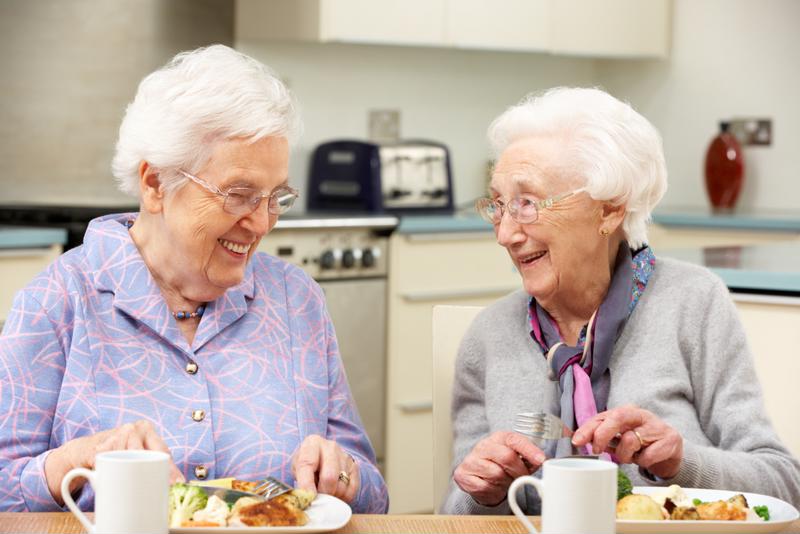Many caregivers can’t afford to pause their full-time jobs to look after elderly loved ones during the day, or they experience burnout when trying to devote their whole lives to caregiving. If you feel as though your aging relative could benefit from assistance and supervision while you’re at work, running errands or recharging alone, consider getting him or her involved in an adult day program.
What exactly are adult day programs?
Adult day programs combine social interaction, recreational activities and health care centers to provide your loved one with a safe and fun place to spend his or her days. According to HelpGuide, these programs typically operate during traditional work hours, Monday through Friday. They usually include healthy meals and snacks cooked with dietary restrictions in mind, as well as a selection of fun classes and hobbies your relative can participate in.
The Mayo Clinic noted that there are usually two types of adult day programs. Adult social day services focus more on giving the elderly a place to commune and socialize, where they can do things like play cards, create art and discuss books. These programs are traditionally staffed with workers who provide minimal medical attention, as the participants are usually healthy enough to get through the day on their own. Program workers may prompt guests to take their daily medication, or check in with someone who has a cold, but it’s a largely independent environment.
The source explained that adult day health care programs are better options for people who require regular medical attention or who have serious conditions that need to be monitored. While these services often provide recreational activities, meals and opportunities for socialization, they usually cater to people who may need to see therapists or doctors on a daily or weekly basis. The Mayo Clinic noted that caregivers can typically enroll their loved ones in adult day health care services specific to their medical issue, such as programs that cater to dementia patients.

Adult day programs provide participants with necessities like healthy meals and social interaction.
What are the benefits of enrolling my loved one in this service?
There are many positive reasons why you should consider getting your relative involved in an adult day program. HelpGuide noted that these services are really the best of both worlds – your relative can continue to live independently or with you, while still having an attentive and social place to spend his or her days. As a caregiver, you have more flexibility and freedom during the week without constantly worrying about the health and safety of your loved one.
“Adult day services are designed to be fun and stimulating.”
Additionally, these programs can provide your relative with many aspects of caregiving you may not be able to give him or her simply due to your schedule or lack of experience with elderly assistance. The source noted that these services offer activities designed to be fun, educational and mentally stimulating for aging minds. They also provide a social, friendly environment that you may not be able to give your relative. And despite your best efforts, your home may feel somewhat stifling to your loved one’s independence. Having somewhere to go and a personalized schedule to follow each day can help him or her maintain a sense of autonomy.
Although many caregivers might feel selfish enrolling their loved ones in these types of programs, they shouldn’t. In fact, when caregivers take more time for themselves to relax and regroup, they can prevent burnout and be more effective, attentive care providers. Additionally, spending a few hours apart from your relative each day can help keep your relationship fresh and strong.
How should I suggest an adult day program to my relative?
While there are numerous benefits to adult day programs, bringing up the topic to your loved one can be a difficult discussion. This is especially true if he or she is having a hard time adapting to reduced independence. Although adult day services will likely increase his or her autonomy, he or she may get defensive at the mention of any type of assisted living program.
Aging Care suggested eliminating the terms “day care” or “assisted care” from the conversation, as your relative might take them as condescending, and they may make him or her feel like a burden that needs to be babysat. Instead, present the idea as a new social club or activities center you’d like him or her to explore. Highlight the activities and social events he or she can participate in rather than the health or mobility services that are offered.
“Suggest taking a tour of a program.”
If your relative seems open to the concept, suggest visiting a center that offers these types of programs to get a better sense of what it’s like. Take a tour that includes a meal and sitting in on an activity for the full experience. If you both enjoy the tour, return for another one later in the week, and see if your loved one can participate in one of the classes. If your relative appears comfortable, suggest signing him or her up for the program starting with two or three days per week. Once he or she adapts to the program’s social and recreational scene, build his or her participation up to full-time.
Aging Care noted that if your loved one seems hesitant to get on board with the idea of adult day programs, you should ask the services’ staff for advice. They are likely trained to deal with elderly care transitions and may be able to offer you valuable advice.
If you found an error, highlight it and press Shift + Enter or click here to inform us.



